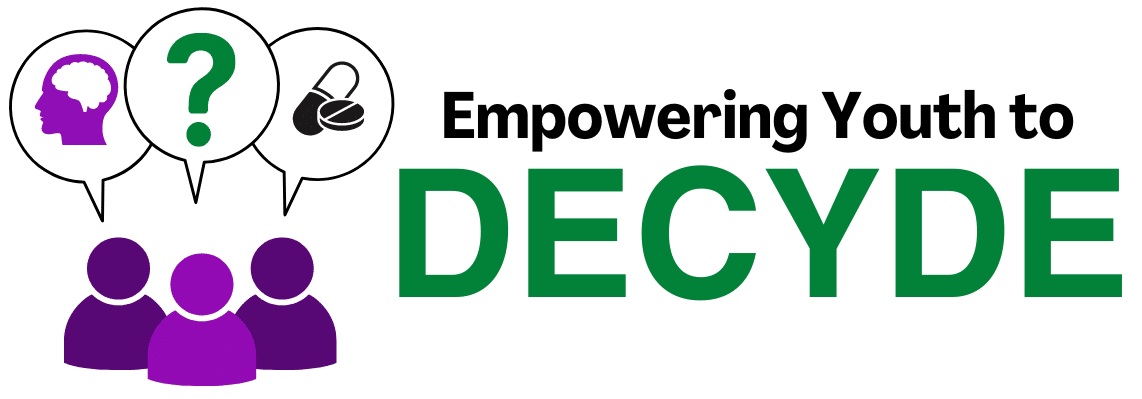Grade 5
Home » Teacher Portal » Grade 5
Overview
The DECYDE Grade 5 program includes three lesson plans, each with multiple activities. Each lesson contains a detailed plan, interactive activities, teacher discussion guides, and supplementary materials. Lessons can be taught in sequence or used individually based on your classroom needs.
Lesson 5.1: Understanding Drugs and Medications
Students will recognize reliable sources of drug-related information and differentiate between categories such as medical vs. non-medical and legal vs. illegal.
Lesson 5.2: Assessing Healthy and Risky Behaviours
Students will identify healthy and risky behaviours in daily life and in relation to medication or substance use, and use the FACE Decision-Making Model to assess their behaviours.
Lesson 5.3: Understanding the Factors that Influence Decision-Making
Students will examine personal and social factors that influence decision-making, and strengthen their skills by applying the FACE Decision-Making Model.
Refer to the following information to aid in the delivery of the lessons:

Mental Health and Substance Use Health Glossary
Provides definitions that promote informed and respectful dialogue in the classroom and other learning environments.

Educational Materials
Consist of concise and accessible information for educators on key topics related to substance use, mental health, well-being, and skills-based health education. The relevant resources applicable for each lesson plan are referenced throughout.

Substance Snapshots
Offer concise and accessible overviews of various substances. Each Snapshot outlines what the substance is, how it is used, its potential effects, when to seek emergency help, and strategies to stay safe. The Snapshots relevant to the lesson plans are referenced throughout.
Some relevant materials include:
The Skills-Based Health Education (SBHE)
This approach is used throughout the lesson plans to enable students to learn skills that promote and protect their health and well-being.
The FACE Decision-Making Model
It is used to guide students through their responses to scenarios within the lesson plans.
Harm Reduction
Provides students with knowledge and practical skills to make safer, more informed choices. The approach emphasizes reducing the risks and negative consequences of substance use, rather than focusing solely on abstinence.
Neurodiversity
Neurodiversity can involve heightened vulnerabilities that may influence how students interact with substances. Educators can support neurodiverse learners by using inclusive, strengths-based approaches that promote understanding, safety, and participation in DECYDE lessons.
Stigma
Stigma and judgment around substance use can negatively impact youth, making it harder for them to seek help or make safer choices. Educators play an important role by using non-judgmental approaches and first-person language to foster a supportive environment that encourages open conversation and help-seeking.
Trauma-Informed Practices (TIPs)
TIPs is a strengths-based approach that acknowledges the impact of trauma and helps restore safety, control, and empowerment. Educators should actively integrate these principles into their teaching to create safe, supportive, and empowering learning environments.






